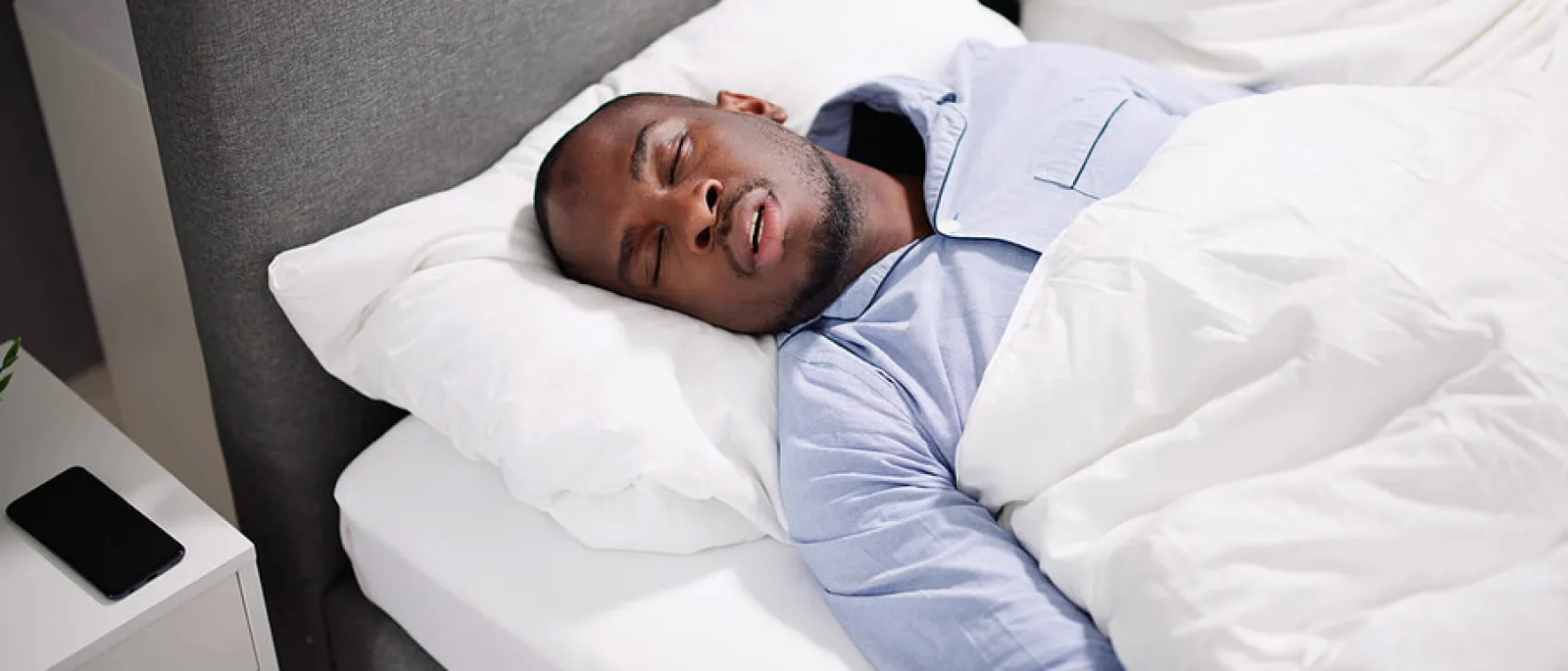It might surprise you to know that nearly half of all adults snore. While this is generally harmless, it can also signal a more serious condition called obstructive sleep apnea (OSA). In this article, we'll discuss the importance of ENT for sleep apnea and how ENT health can affect your sleep.

What is ENT for Sleep Apnea?
ENT stands for Ear, Nose, and Throat and is crucial in regulating respiration and airflow during sleep. Obstructive Sleep Apnea, or OSA, is a disorder characterized by intermittent breathing pauses during sleep due to narrowing or collapse of the upper airway. These pauses can last over 10 seconds per episode, leading to decreased blood oxygen levels and disrupted restorative sleep. Untreated sleep apnea may result in high blood pressure, strokes, and heart disease.
What is the Connection Between Snoring and Sleep Apnea?
According to sinus & snoring specialists, snoring occurs when there's a partial blockage in the airway at the back of your mouth and nose. This blockage typically occurs at the junction of the upper throat, tongue, and soft palate, leading to the vibration of soft tissues in the throat during breathing. However, when this blockage becomes more severe, it can escalate to apnea.
Apnea is when the airflow obstruction worsens, causing a reduction or complete blockage of your airway as you try to breathe. Apnea during sleep is known as sleep apnea, which disrupts your breathing patterns.
What is a Deviated Septum?
A deviated septum occurs when the septum, the wall between your nostrils, is crooked or off-center. This deviation narrows one nostril, making breathing difficult.
Can a Deviated Septum Cause Sleep Apnea?
Yes, a deviated septum can develop or worsen your sleep apnea. This condition results in nasal obstructions, causing you to breathe through your mouth, especially during sleep. Due to the deviated septum, the airway narrows, causing mouth breathing, which prevents the natural humidification and air filtration that occurs when you breathe through your nose. This can contribute to the development of sleep apnea.
What is Sleeping with Open Mouth Sore Throat?
"Sleeping with open mouth sore throat" refers to a condition where throat inflammation or a burning sensation occurs due to mouth breathing or nasal congestion. This prevents deep, restful sleep and may lead to more severe conditions such as laryngitis and throat infections.
Risks of Sleeping with Open Mouth Sore Throat
Sleeping with an open mouth can cause dryness and irritation in the throat and expose you to airborne allergens, dust, and diseases, possibly leading to throat and upper respiratory tract infections. Another common result of sleeping with open mouth sore throat is Laryngopharyngeal Reflux (LPR), where stomach acid travels back to your throat and lungs during extended periods of mouth breathing, potentially causing severe health complications.
If you develop a throat infection, it is highly suggested that you immediately see sinus & snoring specialists.
How Does Ear Health Affect Sleep?
Ear health significantly impacts sleep quality, especially in young children. The inner ear houses the vestibular system, which regulates the sleep-wake cycle.
Otitis media is a disease of the inner ear tubes caused by a bacterial or viral infection that primarily affects infants and children but can be just as detrimental for adults. Symptoms include ear pain, fever, and sometimes hearing loss, disrupting sleep.
Chronic Otitis Media (COM) is an inflammation or infection of the middle ear resulting from repeated infections and inflammation in the inner ear. COM can lead to severe sleep disturbances in adults and, if left untreated, lead to serious infections and hearing loss.
Seek Help From The Experts
ENT health is closely connected to sleep quality as the ear, nose, and throat control oxygen intake and respiration.
It might be time to see a doctor if you wake up with a sore throat, experience daytime drowsiness despite sufficient sleep, or suffer from ear discomfort. The ENT specialists at ENT of Georgia South provide exceptional care for various ENT issues. To schedule an appointment, visit ENT of Georgia South today!

